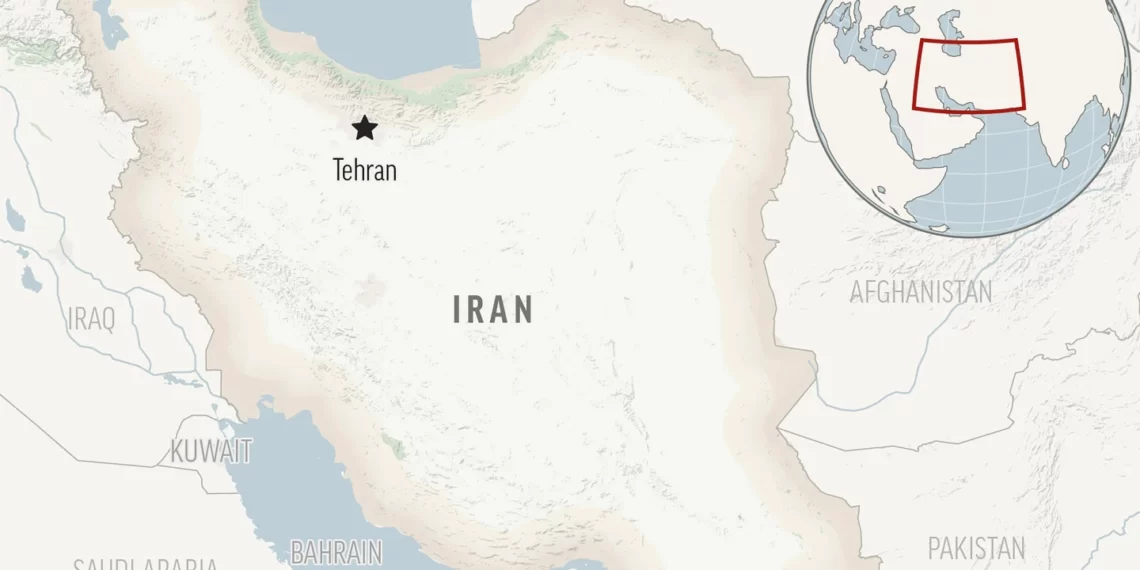In a Qatar-brokered agreement, five U.S. nationals detained in Iran were exchanged for five Iranians held in the U.S. on Monday, September 18, 2023.
A plane sent by Qatar flew the five U.S. citizens and two of their relatives out of Tehran.
The five Americans with dual nationality are due to fly to Doha and then on to the U.S.
At the same time, two of the five Iranians landed in Qatar, a U.S. official said. Three have opted not to return to Iran.
The U.S. dual citizens who gained their freedom include Siamak Namazi, 51, and Emad Sharqi, 59, both businessmen, and Morad Tahbaz, 67, an environmentalist who also holds British nationality. They were released from prison and put under house arrest last month.
A fourth U.S. citizen was also released into house arrest, while a fifth was already under house arrest. Their identities have not been disclosed.
Iranian officials have named the five Iranians to be released by the U.S. as Mehrdad Moin-Ansari, Kambiz Attar-Kashani, Reza Sarhangpour-Kafrani, Amin Hassanzadeh and Kaveh Afrasiabi.
Iran’s Foreign ministry spokesperson, Nasser Kanaani said two of the Iranians being released would return to Iran while two would stay in the U.S. at their request.
One detainee would join his family in a third country, he added.
The deal, a result of months of talks in Qatar, also saw to the unfreezing of $6 billion of Tehran’s funds.
As a first step in the deal, Washington waived sanctions to allow the transfer of $6 billion in Iranian funds, blocked in South Korea to Qatar.
Qatar will ensure the cash is spent on humanitarian goods and not items under U.S. sanctions.
According to a source, the U.S detainees were flown out of Iran soon after both sides received confirmation that the funds had been transferred to accounts in Doha.
Ties between Washington and Tehran have been tense since Donald Trump pulled the U.S. out of a nuclear deal between Iran and global powers when he was President in 2018.
The two countries remain deeply divided on other issues ranging from Iran’s nuclear programme and its influence around the region to U.S. sanctions and America’s military presence in the Gulf.
U.S. tags Tehran a sponsor of terrorism and Iran calls Washington the “Great Satan.”
A senior U.S. administration official noted that the deal did not change Washington’s adversarial relationship with Tehran. However, the door was open for diplomacy on Iran’s nuclear programme.
The official who spoke on condition of anonymity, added, “If we see an opportunity, we will explore it but right now, I’ve really nothing to talk about.”
Republicans Decry Biden’s Decision
The transfer of Iran’s funds under the agreement has drawn criticism from U.S. Republicans.
They claim that President Joe Biden is in effect paying a ransom for U.S. citizens, thereby encouraging more detentions and boosting the Iranian economy at a time when Iran poses a growing threat to U.S. troops and Mideast allies.
Michael McCaul, the Republican Chair of the US House foreign affairs committee, accused Biden of being naive and returning to the mistakes of the past.
The Republican presidential candidate, Ron DeSantis described Biden’s decision as outrageous, adding that it “has sent a signal to hostile regimes that if you take Americans, you could potentially profit… A rogue regime should know that if you touch the hair on the head of any American, you will have hell to pay.”
Rep. Michael Waltz of Florida posted on X, “There’s NO downside for dictatorships, like Iran or Russia, to take Americans hostage.”
“With Biden, these regimes always get a good deal in the end, and that’s why they’ll keep doing it,” he added.
Nonetheless, the White House defended the deal.
READ ALSO: Labour Expert Disagrees With GSS Report On Gender Pay Gap




















